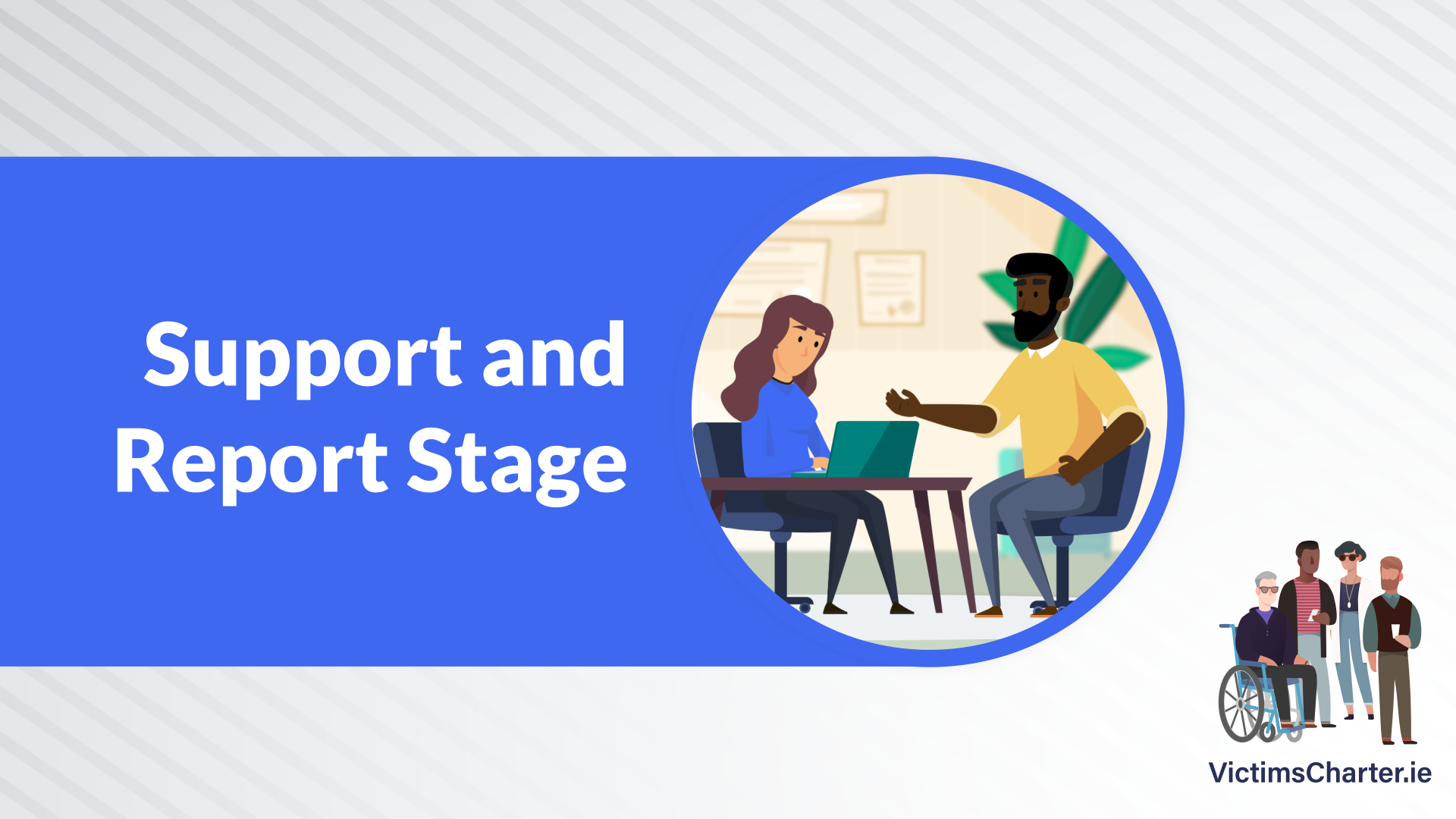What Support is Available to Victims of Crime?
When you become a victim of a crime, it is important that you know you will be listened to and you will be supported. You may wish to reach out for support even before you want to report the crime.
Please click on a link below to find information on what support is available to you. The Crime Victims Helpline is a listening and information service for victims of any crime. The Directory of Victim Support Services has details of specialised support services for victims of various types of crime. There is also information for Irish citizens who become a victim of crime abroad.
If you are a victim of sexual violence, this website has a dedicated section that has information on the steps you can take on the recovery process and the support that is available to you, whether the violence is recent or has happened in the past.
How to Report a Crime
Reporting a crime can be daunting, especially if you have not done it before. The Victims Charter has information on each step of the reporting process, which can be found by following the links below.
The reporting process begins with making a report to An Garda Síochána, who will investigate the crime by taking statements and gathering evidence into a file. When this file is completed it may be sent to the Garda Superintendent, and/or the Office of the Director of Public Prosecutions who will decide on whether the case is sent for prosecution.
The Victims Charter also has information on how to make a complaint to the Garda Síochána Ombudsman Commission (GSOC) and compensation that is available to victims of crime through the Criminal Injuries Compensation Tribunal
Awareness Campaign Websites
The Department of Justice maintain a number of websites that provide useful information for victims of specific crimes. These websites include contact information for victims support services. These campaigns include:
- What Would You Do: The National Awareness Campaign on Domestic Violence
- No Excuses: The National Awareness Campaign on Sexual Harassment and Sexual Violence
- Always Here: A campaign to raise awareness of pathways to safety and supports available to victims of DSGBV.
- Blue Blindfold: Information site about Human Trafficking highlighting the signs of trafficking, how to report suspicions and get help.

